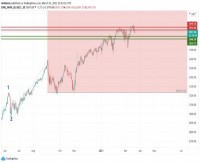|
Opalesque Industry Updates – New York, NY – Hennessee Group LLC, a consultant and adviser to direct investors in hedge funds, announced today that the Hennessee Hedge Fund Index advanced +2.27% in December (+24.85% YTD), while the S&P 500 rose +2.81% (+24.71% YTD), the Dow Jones Industrial Average increased +0.80% (+18.82% YTD), and the NASDAQ Composite Index advanced +5.81% (+43.89% YTD). The Barclays Aggregate Bond Index declined -1.56% (+5.63% YTD). “With December’s positive performance (+2.27%), the Hennessee Hedge Fund Index has recouped the entirety of 2008’s losses (-19.83%), and the index has established a new high water mark,” said Lee Hennessee, Managing Principal of Hennessee Group. “Hedge funds kept pace with the S&P 500 this year, exceeding our expectations because managers were risk averse throughout 2009 as the Dow plummeted to 6,448 and sentiment was poor for the entire year. One important consideration is that most funds were underwater in 2009 and thus, did not charge an incentive fee.” “December saw hedge fund managers taking money off the table and realizing 2009 gains,” commented Charles Gradante, Co-Founder of Hennessee Group. “The ‘December Effect’ helped push equity markets higher, which benefited funds maintaining a net long bias. Natural resources and commodities outperformed as many managers positioned for a potential ‘re-stocking’ rally and inflation in 2010.” The Hennessee Long/Short Equity Index advanced +2.16% in December (+21.44% YTD). Hedge funds added to their gains for the year in December, but underperformed broad equity markets. Some funds reduced exposure and preserved gains as year end approached. Growth continued to outperform value during the month. The technology sector jumped +5.6% in December, while financials (-1.6%) and energy (-1.0%) were the two primary detractors. Managers are optimistic on long/short equity for 2010 as they feel that equity markets will be more fundamentally driven, allowing managers to identify both long and short opportunities. “2009 ended with the S&P 500 dividend yield dropping to 1.71%, the lowest dividend yield ever recorded for the S&P, indicating that a potential correction is at hand,” commented Charles Gradante. “The P/E ratio on the S&P 500 has expanded from 10x to 23x over the past 9 months. The multiple expansion phase of this rally has ended. Managers are focused on earnings, and we will need to see positive earnings guidance to see this market break through 11,000 resistance on the Dow Jones.” The Hennessee Arbitrage/Event Driven Index gained +3.01% in December (+30.80% YTD). Distressed and convertible arbitrage managers continued to generate positive performance in December, adding additional gains to an already remarkable year. The spread on the Merrill Lynch High Yield Index tightened from 765 basis points to 639 basis points during the month, the lowest level since June of 2008. Treasuries and Investment Grade bonds declined in December, while the High Yield Index posting its 10th consecutive positive month. The Hennessee Distressed Index advanced +5.06% in December (+42.96% YTD). Distressed funds continue to benefit from their directional bias and the contraction in credit spreads. One of the most profitable positions in December for managers was CIT, which emerged from a pre-packaged bankruptcy. The Hennessee Convertible Arbitrage Index advanced +1.95% (+40.53% YTD). In December, spreads, market richening and positive cash carry made positive contributions, while interest rates and volatility detracted from performance. Managers remain optimistic on the opportunity set, however opportunities are not as attractive as six months ago and we are seeing more funds employ leverage to generate gains. The Hennessee Merger Arbitrage Index advanced +0.83% in December (+8.66% YTD). Merger arbitrage continued to underperform more directional strategies, but was able to generate consistent positive performance. Manages expect deal flow to continue as cash strapped companies move to expand by acquiring coveted assets. “Managers were ‘shell shocked’ in 2008 as the credit crisis and massive deleveraging caused a major dislocation in several strategies, specifically convertible arbitrage and high yield. In 2009, we witnessed an incredible snapback in these securities, which drove outsized returns,” commented Charles Gradante. “While the last two years have been ‘definitely extreme’, we expect 2010 to be more typical, where security selection and credit analysis will drive positive performance.” The Hennessee Global/Macro Index advanced +1.98% in December (+24.58% YTD). Global equities increased, though underperformed U.S. markets, as the MSCI EAFE Index advanced +1.36% (+27.75% YTD). Emerging market again outperformed developed markets, a common theme for 2009. The Hennessee Macro Index declined -0.28% in December (+11.51% YTD). Managers made significant profits short Treasuries, as the 2-year Treasury yield jumped from 0.66% to 1.14%, and the 10-year Treasury yield rose from 3.20% to 3.84%. The 30-year Treasury yield increased from 4.19% to 4.64%. Managers expect the Fed to raise rates in mid-2010 and that should drive long-term rates higher. Managers retraced some profits long gold, as the S&P GSCI gold spot index declined -7.28% in December; however, most managers are long term holders of gold and did not reduce their holdings. Managers short the dollar also suffered losses, as the dollar index increased significantly over the month against other currencies. “Emerging market managers are concerned that the IPO calendar for 2010 will add too much supply of stock and stall the current rally,” commented Charles Gradante. “The 2010 IPO calendar is the largest in history with China leading the group.”...Corporate Website: Source kb |
Industry Updates
Hennessee Index announces +2.27% December performance, erasing 2008 losses to regain high water mark
Monday, January 11, 2010
|
|





 RSS
RSS








